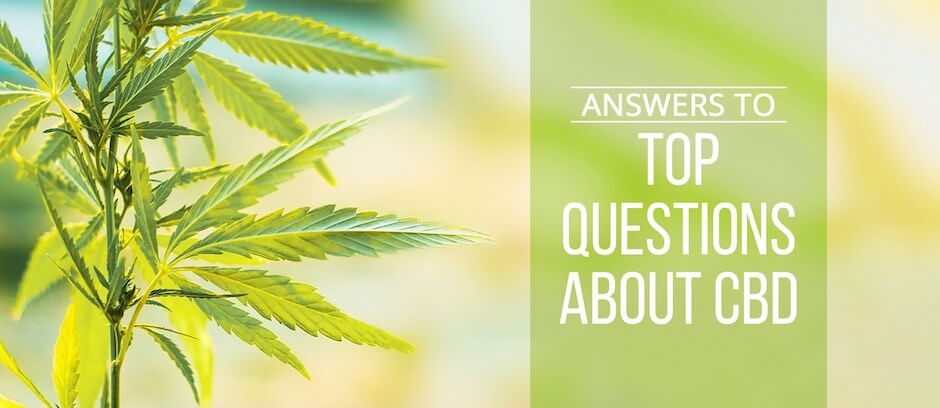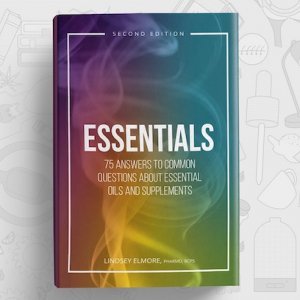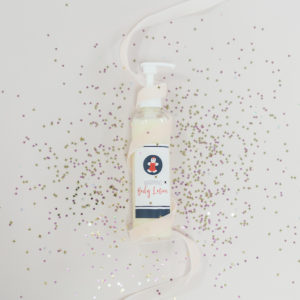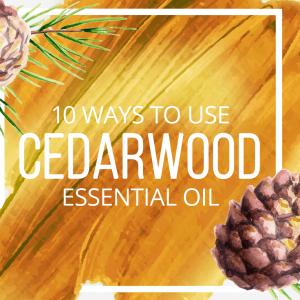With the ever-increasing popularity of CBD, the marketplace is flooded with hype-filled claims and benefits of this natural miracle drug. We can now find CBD-infused lattes at coffee shops, CBD facials at the spa, CBD candy and baked goods, and loads of lotions and potions containing CBD oil. So what exactly is CBD, and why all the hype? Is it really the miracle drug your anxious coworker and your achy mother-in-law claim it is? Here are some answers to top questions about CBD.
What is CBD?
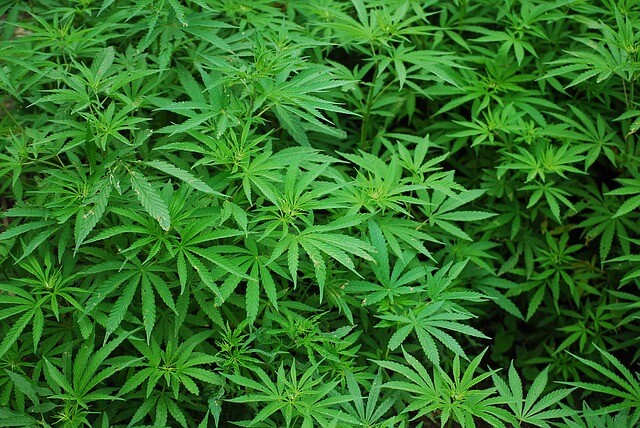
Cannabidiol, or CBD, is a chemical compound from the cannabis plant (Cannabis sativa). Hemp and marijuana are both varieties that come from the same species of plant. CBD is typically the second most abundant cannabinoid in cannabis plants, next to tetrahydrocannabinol, or THC.
A cannabinoid is a compound that interacts with the endocannabinoid system (ECS) via receptor sites. There are 2 receptors in this system: CB1, and CB2. The way cannabinoids affect our bodies depends largely upon the way they interact with these two receptors.
How is CBD Oil Obtained?
There are two main extraction methods for CBD oil.
CO2 Extraction involves the use of carbon dioxide, which is subjected to extremely low temperatures and increased pressure. This causes a phase change from a gas to a liquid. When reheated and pressurized, the CO2 becomes “supercritical”, which basically means it has properties of a gas and a liquid.
Next, the supercritical fluid passes through a chamber containing the raw cannabis material. As it does so, it gently dissolves the membrane of the plant to release its active compounds.
Then the CO2 and cannabis oil particles funnel into a pressurized cyclonic separator, where the CO2 evaporates from the mixture. The cannabis oil, waxes and resins descend into a collection vessel and are ready for further filtration and purification.
Solvent Extraction is a method of soaking raw cannabis material in ethanol to pull compounds into the solvent. Following extraction, the plant material is then removed and the alcohol is evaporated out.
So Which Extraction Method is Better?
Well, that depends on who you ask. Because CO2 involves the use of high pressures and temperatures, some people contend that it destroys more of the chemical constituents of the plant. Others prefer the CO2 method because solvent extraction destroys the cannabis waxes, which contain beneficial flavonoids and carotenoids. Additionally, there is a limited risk that some of the solvent chemical remains in the final product.
Is CBD Oil Considered an Essential Oil?
In short, no. An essential oil, by definition, is obtained by steam distillation. Therefore, CBD is not an essential oil. The main reason for this is that the high temperatures required for steam distillation would degrade most of the fragile compounds of CBD. CBD essential oil would have far fewer therapeutic properties than the whole oil.
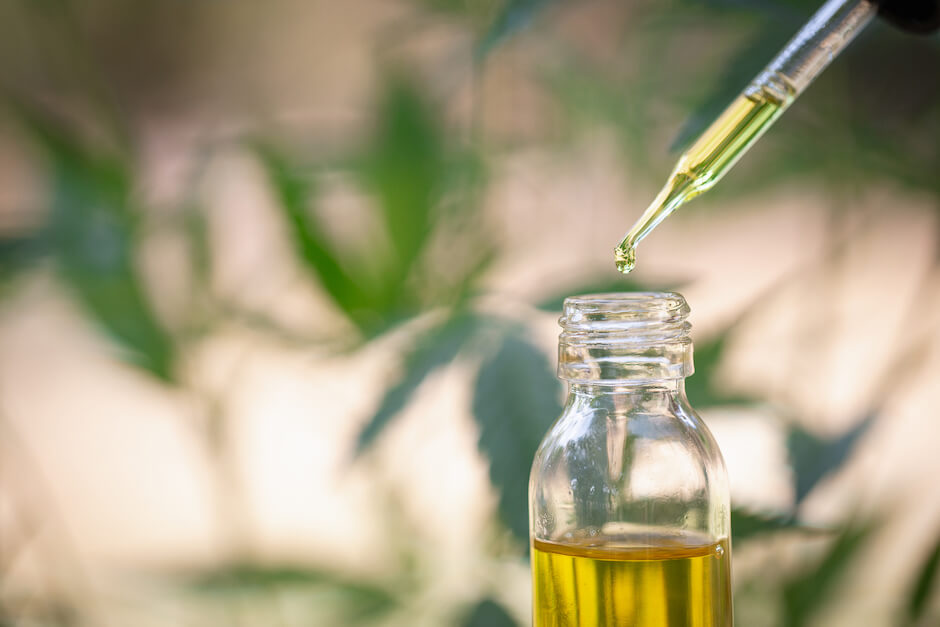
What About Aroma, Viscosity, and Volatility?
Of course the characteristics of the CBD oil you use depend on the extraction method, the producer, and any additives that it may contain. In general, as a whole oil, CBD oil is heavier and thicker than an essential oil, but not quite as thick and slick as carrier oils, such as olive, coconut, or almond oil. The oil does have the natural aroma and flavor of the cannabis plant, however it is not as aromatic as an essential oil and will not evaporate as readily.
Is CBD Oil Legal Everywhere?
Yes. . .and no. The passing of the Agricultural Improvement Act of 2018 legalized CBD derived from hemp plants and containing less than 0.3% THC. However, marijuana-derived CBD oil remains restricted in most states. It is best to check the specific laws for your state.
Can I Get High From CBD Oil?
No. As mentioned above, CBD and THC are both cannabinoids, but they interact with the endocannabinoid system differently. THC fits into a very specific receptor site in the brain, which results in the euphoric feeling of being high. CBD doesn’t fit into the same receptor and therefore will not cause the same sensation. For a more detailed explanation of the endocannabinoid system and how THC and CBD affect it, check out this post.
Does CBD Show Up On Drug Tests?
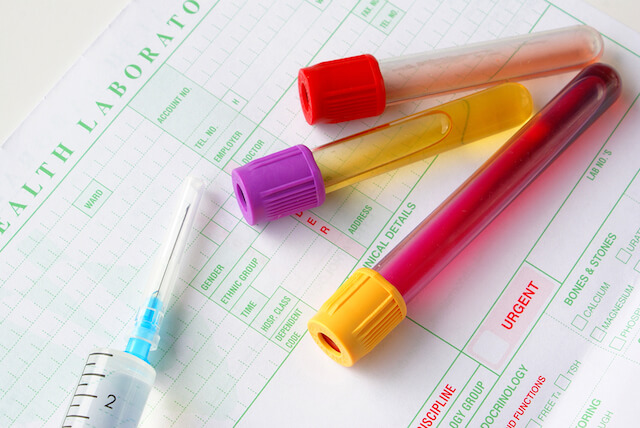
Drug tests routinely screen for illegal substances, including THC. However, the tests do not screen for CBD. Whether your workplace uses a standard 5-panel or 10-panel screening, neither of them test for the presence of CBD.
What Are the Benefits of CBD Oil?
Although there is minimal research on CBD, the results are promising.
- Mental Support: Some studies have found CBD may be effective in providing relief from various mental health conditions. Check out this post for more about CBD and Emotions.
- Pain Relief: From various types of pain, such as arthritis, neuropathic pain, and more.
- Sizeures/epilepsy
- Immunity: Improves immunity and reduces inflammation.
- Cancer treatments: Inhibition of tumor growth and reduction of chemotherapy-related nausea
- Sleep disorders and addiction
- Neuroprotection
How Do I Take CBD?
CBD products come in various forms:
- Liquid drops for oral usage – typically dropped under the tongue for fast delivery into the bloodstream
- Topical creams and ointments – especially effective for muscle and joint pain
- Capsules and pills – typically used for systemic treatment of seizure disorders and digestive issues
- Edibles, such as gummies – the most popular and affordable method
- Vaporized CBD oil – the fastest way to experience effects. Compounds are inhaled and absorbed directly from the lungs into the bloodstream. (Beware that research regarding the overall safety of vaping is still lacking, and it may cause significant damage to delicate lung tissue.)
How Much Do I Take?
As with most natural products, it’s a good idea to start with a low dosage and go slow with increasing your dose. Recommended dosages run the gamut, with starting doses ranging from 11 mg to 40 mg. Take into consideration the concentration of CBD in the product you are using, your body weight, and the desired effects.
What are the Side Effects?
Though most people tolerate CBD, it may cause adverse reactions in some people. Possible side effects include diarrhea, changes in appetite, and fatigue. CBD oil may also interact with several medications. It is important to discuss with your doctor before you start using CBD oil to avoid potentially harmful interactions.
Is it Safe for My Pets?
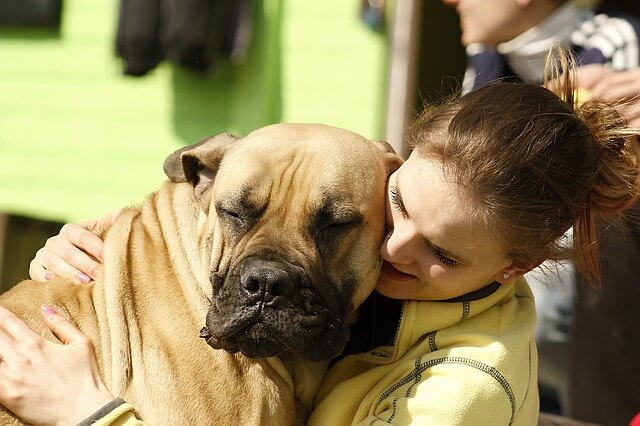
With all the benefits listed above, you may be tempted to slip a little CBD oil in your anxious pup’s food or apply some CBD cream to an arthritic horse’s joints. Veterinarians are, in fact, catching on to the CBD craze, and there are a very few promising reports. Unfortunately, there simply isn’t enough research of the effects of CBD on animals at this time. The ASPCA recommends waiting on further research before using CBD with your pets.
More Information
If those answers to the top questions about CBD oil didn’t cover your question, comment below and ask away!
You may also find some great information in the following posts:
- The Difference Between CBD and THC
- CBD and Emotions
- CBD vs. Copaiba: Are they really the same?
- Exposing 4 Myths About CBD Oil
- CBD and Drug Interactions
- Is CBD an Essential Oil?
- CBD and Alcohol
- CBD and Special Populations
